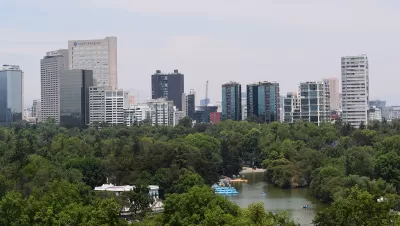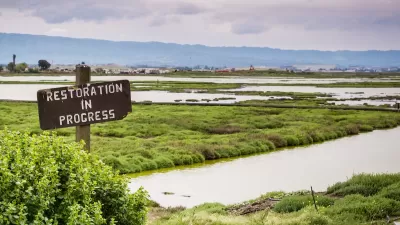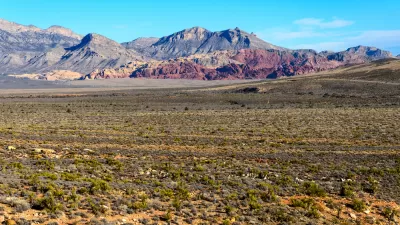Part literature review, part political appeal, this article makes the case for rethinking the concept of what makes plants native—especially in the face of climate change.

Erle C. Ellis writes of the scientific approach to conserving biodiversity as the footprint of human settlement spreads across the planet—an approach that requires several breaks from the status quo.
First Erle argues that cities are the most important location for the fight to conserve biodiversity: "As climate change, land use, pollution, and other anthropogenic forces displace wildlife from their historical habitats, urbanizing landscapes are increasingly where the conservation action is — and needs to be."
Then Earle sets about debunking a widely held assumption about the kinds of plants that comprise urban biodiversity:
Nevertheless, a focus on native plantings as the key to biodiversity conservation in urban areas can create more problems than it can solve. To begin with, the concept of “native species” itself can be the problem.
With a bit more detail:
To define a spatial limit where a species is “native” — and where it is not — when climate is changing so rapidly may already be more of a problem than a solution.
Instead of turning the built environment into a kind of museum for biodiversity, Earle suggests instead that it's time to "embrace a dynamic vision of what it means to be native — to belong in a place — whether it is urban, agricultural, semi-natural or wild."
FULL STORY: Cultures of nature: What does it mean to be native in the city?

Maui's Vacation Rental Debate Turns Ugly
Verbal attacks, misinformation campaigns and fistfights plague a high-stakes debate to convert thousands of vacation rentals into long-term housing.

Planetizen Federal Action Tracker
A weekly monitor of how Trump’s orders and actions are impacting planners and planning in America.

In Urban Planning, AI Prompting Could be the New Design Thinking
Creativity has long been key to great urban design. What if we see AI as our new creative partner?

King County Supportive Housing Program Offers Hope for Unhoused Residents
The county is taking a ‘Housing First’ approach that prioritizes getting people into housing, then offering wraparound supportive services.

Researchers Use AI to Get Clearer Picture of US Housing
Analysts are using artificial intelligence to supercharge their research by allowing them to comb through data faster. Though these AI tools can be error prone, they save time and housing researchers are optimistic about the future.

Making Shared Micromobility More Inclusive
Cities and shared mobility system operators can do more to include people with disabilities in planning and operations, per a new report.
Urban Design for Planners 1: Software Tools
This six-course series explores essential urban design concepts using open source software and equips planners with the tools they need to participate fully in the urban design process.
Planning for Universal Design
Learn the tools for implementing Universal Design in planning regulations.
planning NEXT
Appalachian Highlands Housing Partners
Gallatin County Department of Planning & Community Development
Mpact (founded as Rail~Volution)
City of Camden Redevelopment Agency
City of Astoria
City of Portland
City of Laramie





























